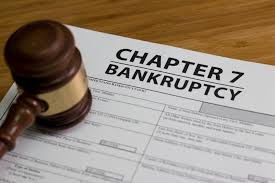If you live in Tampa and are searching for a bankruptcy lawyer, understanding how Chapter 7 works can bring calm to a stressful moment. This guide explains what Chapter 7 typically discharges, what it does not, and how Florida exemptions help many families keep the things they rely on every day.
What Chapter 7 really does
Chapter 7 is designed to give an honest debtor a fresh start. After you file, most collection activity must stop while the court reviews your case. A court-appointed trustee examines your assets and your paperwork, and if everything is in order, a discharge wipes out qualifying debts. Many cases are “no-asset,” which means there is nothing for the trustee to sell because exemptions cover what you own.
Debts that are usually discharged
For most filers, Chapter 7 eliminates unsecured debts. These often include credit cards, medical bills, personal loans without collateral, store cards, utility balances, certain old lease or cell phone balances, and deficiency amounts after a car is repossessed or a home is sold in foreclosure. When the discharge enters, you no longer owe those balances, and creditors must close their files.
Debts that generally survive
Some obligations are not erased. Domestic support, such as child support or alimony, remains due. Most student loans are not discharged unless a separate case shows undue hardship. Recent income taxes and certain other taxes can survive. Court fines, criminal restitution, and debts created through fraud or willful injury also stay in place. If you financed a car or home and want to keep it, you need to continue paying the loan or work out other approved arrangements.
How Florida exemptions protect your property
Exemptions are laws that let you keep certain assets up to limits set by the state or federal rules that apply in your case. Florida’s homestead protection is well known and can safeguard a primary residence if you meet the use and acreage rules. Many retirement accounts are protected. Florida also allows protection for equity in a vehicle and for personal property such as furniture, clothing, and household goods, within set limits. Wages for heads of household may receive strong protection. Which exemptions you can use depends on your residency and your specific facts, so good planning matters before you file.
Who may qualify
Eligibility turns on your income, household size, and allowable expenses. The process begins with a means test that compares your income to guideline numbers and then looks at what you reasonably spend on housing, food, transportation, and similar needs. Many people who feel they would not qualify are surprised to learn that, after allowed expenses are counted, they do.
The filing process in plain terms
Before filing, you complete a brief credit counseling session from an approved provider. Your attorney prepares schedules that list your assets, debts, income, and expenses, then files them with the court. About a month later, you attend a short meeting of creditors where the trustee asks routine questions. If no issues arise, you complete a short financial management course and receive a discharge a few months after filing. Throughout the case, you should avoid unusual transfers, stay current on any property you plan to keep, and promptly provide any documents the trustee requests.
READ MORE : New Crypto Trader Guide: Best Cryptocurrencies to Invest In
Life after a discharge
A discharge is the start of a new chapter. Many people see a credit score dip at first, then steadier growth as on-time payments and lower balances replace past due accounts. Simple steps help: pull your credit reports to confirm accurate updates, create a written budget, set aside a small emergency fund, and consider a secured card used for modest purchases that you pay in full each month. With patience and consistent habits, most families rebuild faster than they expected.
Conclusion
When debt feels overwhelming, clear guidance makes all the difference. If you would like a thoughtful review of your options with a Tampa bankruptcy lawyer, reach out to Weller Legal Group. An experienced team can help you weigh Chapter 7 against other solutions and map a path toward steadier finances.

